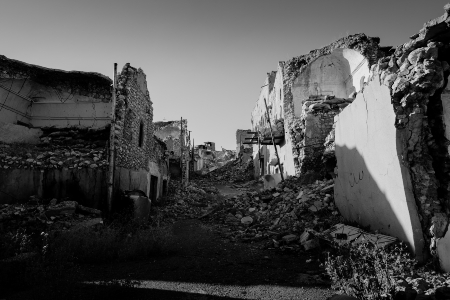We ask you, humbly: don't scroll away.
Hi readers, it seems you use Catholic Online a lot; that's great! It's a little awkward to ask, but we need your help. If you have already donated, we sincerely thank you. We're not salespeople, but we depend on donations averaging $14.76 and fewer than 1% of readers give. If you donate just $5.00, the price of your coffee, Catholic Online School could keep thriving. Thank you.Help Now >
Consumers get conflicting advice: Save more, spend more
FREE Catholic Classes
McClatchy Newspapers (MCT) - Economists would say Deb Clem-Buckert is the sort of rational person who drives their models.
Highlights
McClatchy Newspapers (www.mctdirect.com)
1/26/2009 (1 decade ago)
Published in Business & Economics
She sees the stock market tank, the job pool shrink and the economy generally circling the drain.
So she saves.
She goes to a discount grocery store for the Velveeta. She and her husband decide their daughter doesn't need new clothes quite so often. They cancel HBO and ditch the phone line at their Olathe, Kan., home, since they do all their calling on the cell phone anyway.
"There are things that you need and things that you want," she said.
Economists say that sort of very reasoned thinking _ thrift in the face of tough times _ actually will make it harder to return America to prosperity.
When the hamster wheel of American consumerism turns more slowly, the country's economic engine sputters. Consequently, politicians are looking for ways to keep consumers from hibernating through this financial winter.
"What's good for the individual may not be good for the economy as a whole right now," said Craig Hakkio, a special adviser on economic policy to the Federal Reserve Bank of Kansas City.
Economists call it the "paradox of thrift."
"People don't spend money for the general welfare," said John Silvia, the chief economist for Wachovia Securities. "They look at their own situation."
Even the majority of us with jobs don't feel as confident in our paychecks as we might have six months ago. If you're a homeowner, chances are some equity in your house has evaporated. Any retirement savings you keep in the stock market is likely shrunken.
You'd be wise, then, to be prudent.
Yet if the whole country channels its inner Ben Franklin, then companies lose sales, they buy fewer supplies, assembly lines stop and even more paychecks will be threatened.
Now the new Obama administration and Congress are faced with trying to get America spending again _ precisely what U.S. households had been doing far too much of for decades.
As St. Augustine prayed: "Lord make me chaste ... but not yet."
Although in the mid-1980s the average American household saved more than a dime of every dollar it took home after taxes, in the pre-crash days of 2007, the typical family stashed away barely a penny for every two dollars spent. That savings rate has been far less than most Europeans and Japanese.
The Chinese save an average of a fourth of their income, and their government is eager for them to spend more, too.
Between 2001 and 2007, average household debt in the United States shot from 97 percent of disposable income to 133 percent.
We ask you, humbly: don't scroll away.
Hi readers, it seems you use Catholic Online a lot; that's great! It's a little awkward to ask, but we need your help. If you have already donated, we sincerely thank you. We're not salespeople, but we depend on donations averaging $14.76 and fewer than 1% of readers give. If you donate just $5.00, the price of your coffee, Catholic Online School could keep thriving. Thank you.Help Now >
Part of the reason Americans spent so much was because it was so easy to borrow. Easy credit card access. Payday loans. Zero-down home mortgages. Low interest rates.
Economists say the real temptation came from living in a time when there seemed to be no ceiling for our stocks or our home prices. As long as those things rose in value, people could leverage ballooning equity to effortlessly afford more extravagant lifestyles.
So to spend more than you earned didn't seem all that crazy. There'd be plenty of rising value in the future to take care of the debt. If you needed money in the short run, you could just take out a home equity loan. Rising real estate prices meant the loans would effectively pay for themselves.
"You could think, 'Why do we save?' To send our kids to college and to have a happy retirement. But if you don't have to put money aside because your stock portfolio and your house is appreciating, then you could consume more than your income," said Nick Perna, a Yale University lecturer and director of his own economic consulting firm.
"People," he said, "began referring to their houses as ATM machines."
Then the housing bubble burst. And Wall Street, with its convoluted subprime mortgage-bundling schemes, came begging for $700 billion from the U.S. Treasury.
Consumer confidence tanked. Only 4 percent of consumers say they are upbeat about the economy. Why should they be? The Congressional Budget Office expects the economy to contract 2.2 percent this year and says home prices will continue to drop, by 14 percent, over the next two years. A year from now, the congressional researchers predict, unemployment will hit 9.2 percent.
The result? The savings rate, almost at zero at the start of 2008, shot up to 2.8 percent by November.
In fact, the Federal Reserve reported credit card borrowing dropped at an annual rate of $7.94 billion in November, the largest fall in 65 years of recordkeeping. Economists had predicted a decline of only one-sixteenth that number.
Analyses are still coming together, but early numbers hint that the 2008 Christmas shopping season probably was the worst that retailers have seen in decades _ barely salvaged by post-holiday sales.
Even though the nation's automakers offered outsized rebates and no-interest loans, they saw sales tumble 36 percent in December.
Detroit's Big Three automakers had already followed Wall Street to Washington shaking a tin cup.
"The rational thing is not to go out and buy a car right now," said Michael Oldfather, a professor emeritus of economics at Kansas State University. "Whatever your situation, it could get worse."
The unemployment rate for December jumped to 7.2 percent, a loss of 524,000 jobs in a single month and the highest rate in 15 years. About 11 million Americans looking for work couldn't find it.
(EDITORS: BEGIN OPTIONAL TRIM)
Small-business owners reported their lowest level of optimism in five years. They told the Wells Fargo/Gallup Small Business Index that on average their revenues, their investments in equipment and their payrolls were all getting smaller.
That said, financial planners don't necessarily advise retreat.
"If you're not retired, you should invest in your business or career to keep your income strong," said Stephanie Guerin, a wealth manager at the Planned Approach in Prairie Village, Kan. "Why aren't you taking that extra class to improve your skills? Why aren't you hiring that extra staff person you need? Stay on the offensive."
She noted that Warren Buffett, the Omaha billionaire and stock market oracle, makes the point that these are the times when stocks come out of the hands of people who shouldn't have them _ and when bargains present themselves to those who stayed out of debt in the go-go times just past.
As science fiction writer Frederik Pohl once put it: "Plenty is a habit-forming drug. You do not cut the dosage down."
George Syata, a financial planner in Overland Park, Kan., recalled talking with a client in the fall about purchasing a long-anticipated cruise.
"His comment was, 'Heck, I've lost more money in the stock market than I'm spending on this cruise,'" Syata said. "He went ahead with it."
(END OPTIONAL TRIM)
In a country where shopping practically passes as sport, economists say American consumers could mitigate the instinct to save.
Some bargains might prove too tempting to pass up, said Daniel Kuester, who teaches economics at Kansas State. Yet consumers deferring purchases too long waiting for the rock-bottom price has its own danger _ "the potential problem of deflation." Economists say we're not there yet.
"We all want lower prices. The problem is: Why are these prices falling?" Kuester asked. "Because no one is buying anything."
In the meantime, people are preoccupied with ways to spend less. Linsey Knerl has been writing to others in the burgeoning frugality movement at the Wisebread.com Web site for years about how to save on clothes and books and food bills.
"I see a lot of people," she said, "who are using a layoff or a pay cut as an excuse to get out of this cycle of working, working, working for things they ultimately decided they didn't really need."
(EDITORS: STORY CAN END HERE)
Washington is looking for economic levers it can turn to crank up consumption.
Tax cuts top the list, but economists worry that people will simply bank the money _ especially if they see the breaks as temporary.
Government-led super-low interest rates to get credit flowing are a factor, too. Earning so little on savings, businesses and consumers can better justify investments and snatching up the market's bargains.
Public works projects offer a more direct way to stimulate the economy. But if government spending stays bloated too long, it adds to budget deficits that could set off yet another recession.
"These decisions need to be made at the individual level," said Dan Ikenson, an economist at the libertarian Cato Institute. "Some people who are in debt can't borrow anymore, or they're upside-down in their mortgages. But that's not everybody. Some people have good credit and might not even need a loan to get a car."
Government make-work jobs, he said, bring an uncertainty to the economy and can crowd out private investment. The last several months saw greater uncertainty because individuals and businesses waited to act until they could see what the Obama administration would do to pump up the economy, Ikenson said.
Still, the consensus among economists is that only Uncle Sam can stop bad from going to worse.
"You want something that will be stimulative in the short run, have a big bang for the buck and also not lead to a permanent increase in the deficit," said Hakkio, the Federal Reserve economist. "It's not easy."
At the consumer level, the anxiety continues. Barbara McMahon, a financial planner with Waddell & Reed in Kansas City, said worry is greatest among people who are a few years from retirement and convinced they don't have time to make up their losses.
"The luxuries, the playtime," she said, "all those things are up for discussion now."
(EDITORS: STORY CAN END HERE)
___
SAVE FOR YOURSELF
_ With no end to the recession in sight, financial planners suggest that all but the most secure pad their emergency funds and pay down debt.
_ Unemployment is expected to get worse before it gets better, so optional purchases and new debt are best avoided.
_ The days of easy credit and exploiting home equity have taken a holiday, so you've got smaller reserves to tap into.
SPEND FOR YOUR COUNTRY
_ Saving money now takes it out of circulation, making the economy worse for everyone.
_ The more people save, the more others become pessimistic about the economy and curb their own spending.
_ Too little spending begets deflation, which leads to even further delays in purchases and a more steeply spiraling economy.
___
© 2009, The Kansas City Star.
We ask you, humbly: don't scroll away.
Hi readers, it seems you use Catholic Online a lot; that's great! It's a little awkward to ask, but we need your help. If you have already donated, we sincerely thank you. We're not salespeople, but we depend on donations averaging $14.76 and fewer than 1% of readers give. If you donate just $5.00, the price of your coffee, Catholic Online School could keep thriving. Thank you.Help Now >
Join the Movement
When you sign up below, you don't just join an email list - you're joining an entire movement for Free world class Catholic education.
-

-
Mysteries of the Rosary
-
St. Faustina Kowalska
-
Litany of the Blessed Virgin Mary
-
Saint of the Day for Wednesday, Oct 4th, 2023
-
Popular Saints
-
St. Francis of Assisi
-
Bible
-
Female / Women Saints
-
7 Morning Prayers you need to get your day started with God
-
Litany of the Blessed Virgin Mary
Ray Dalio Warns of Potential Civil War, Advises Moving Assets Abroad
-

Understanding Pentecost: A Celebration of the Holy Spirit in the Catholic Tradition
-

Did you know the Catholic Church has a birthday?
-
Catholic Bishops Call for Civil Dialogue Amid Church Polarization
-
Pope Francis Emphasizes Charity as the Pinnacle of Christian Love
Daily Catholic
 Daily Readings for Saturday, May 18, 2024
Daily Readings for Saturday, May 18, 2024 St. Pope John I: Saint of the Day for Saturday, May 18, 2024
St. Pope John I: Saint of the Day for Saturday, May 18, 2024 Prayer to St. Gabriel, for Others: Prayer of the Day for Friday, May 10, 2024
Prayer to St. Gabriel, for Others: Prayer of the Day for Friday, May 10, 2024- Daily Readings for Friday, May 17, 2024
- St. Paschal Baylon: Saint of the Day for Friday, May 17, 2024
- Prayer for Travelers: Prayer of the Day for Thursday, May 09, 2024
 Hi readers, it seems you use Catholic Online a lot; that's great! It's a little awkward to ask, but we need your help. If you have already donated, we sincerely thank you. We're not salespeople, but we depend on donations averaging $14.76 and fewer than 1% of readers give. If you donate just $5.00, the price of your coffee, Catholic Online School could keep thriving. Thank you. Help Now >
Hi readers, it seems you use Catholic Online a lot; that's great! It's a little awkward to ask, but we need your help. If you have already donated, we sincerely thank you. We're not salespeople, but we depend on donations averaging $14.76 and fewer than 1% of readers give. If you donate just $5.00, the price of your coffee, Catholic Online School could keep thriving. Thank you. Help Now >
![]()
Copyright 2024 Catholic Online. All materials contained on this site, whether written, audible or visual are the exclusive property of Catholic Online and are protected under U.S. and International copyright laws, © Copyright 2024 Catholic Online. Any unauthorized use, without prior written consent of Catholic Online is strictly forbidden and prohibited.
Catholic Online is a Project of Your Catholic Voice Foundation, a Not-for-Profit Corporation. Your Catholic Voice Foundation has been granted a recognition of tax exemption under Section 501(c)(3) of the Internal Revenue Code. Federal Tax Identification Number: 81-0596847. Your gift is tax-deductible as allowed by law.










 Daily Readings for Saturday, May 18, 2024
Daily Readings for Saturday, May 18, 2024 St. Pope John I: Saint of the Day for Saturday, May 18, 2024
St. Pope John I: Saint of the Day for Saturday, May 18, 2024 Prayer to St. Gabriel, for Others: Prayer of the Day for Friday, May 10, 2024
Prayer to St. Gabriel, for Others: Prayer of the Day for Friday, May 10, 2024
